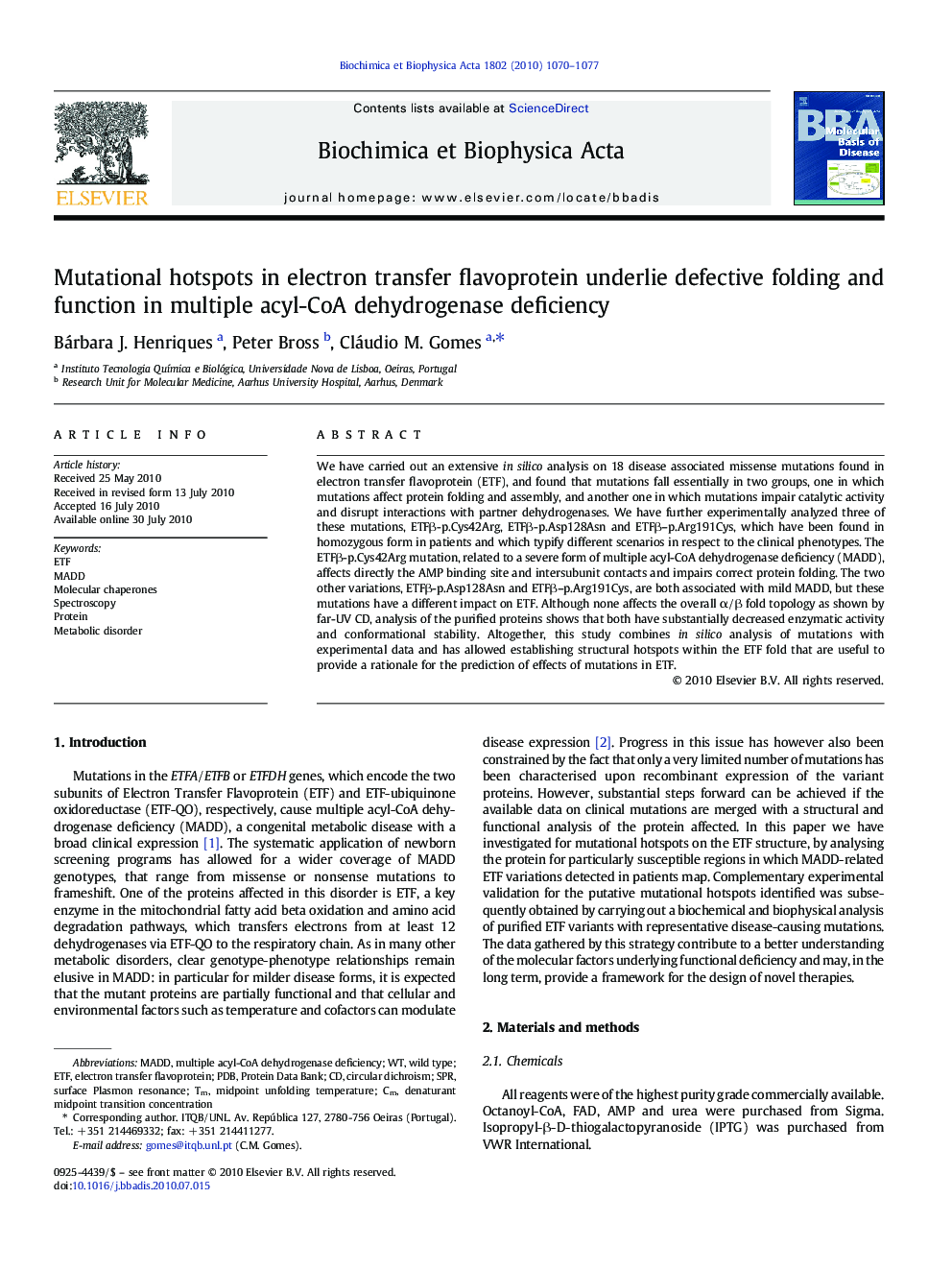| Article ID | Journal | Published Year | Pages | File Type |
|---|---|---|---|---|
| 1905326 | Biochimica et Biophysica Acta (BBA) - Molecular Basis of Disease | 2010 | 8 Pages |
We have carried out an extensive in silico analysis on 18 disease associated missense mutations found in electron transfer flavoprotein (ETF), and found that mutations fall essentially in two groups, one in which mutations affect protein folding and assembly, and another one in which mutations impair catalytic activity and disrupt interactions with partner dehydrogenases. We have further experimentally analyzed three of these mutations, ETFβ-p.Cys42Arg, ETFβ-p.Asp128Asn and ETFβ–p.Arg191Cys, which have been found in homozygous form in patients and which typify different scenarios in respect to the clinical phenotypes. The ETFβ-p.Cys42Arg mutation, related to a severe form of multiple acyl-CoA dehydrogenase deficiency (MADD), affects directly the AMP binding site and intersubunit contacts and impairs correct protein folding. The two other variations, ETFβ-p.Asp128Asn and ETFβ–p.Arg191Cys, are both associated with mild MADD, but these mutations have a different impact on ETF. Although none affects the overall α/β fold topology as shown by far-UV CD, analysis of the purified proteins shows that both have substantially decreased enzymatic activity and conformational stability. Altogether, this study combines in silico analysis of mutations with experimental data and has allowed establishing structural hotspots within the ETF fold that are useful to provide a rationale for the prediction of effects of mutations in ETF.
Research highlights►ETF mutations cause multiple acyl-CoA dehydrogenase deficiency. ►Mutations affect either protein folding and assembly, or catalytic activity. ►Structural hotspots within the ETF fold provide a rationale for prediction of effects of mutations.
